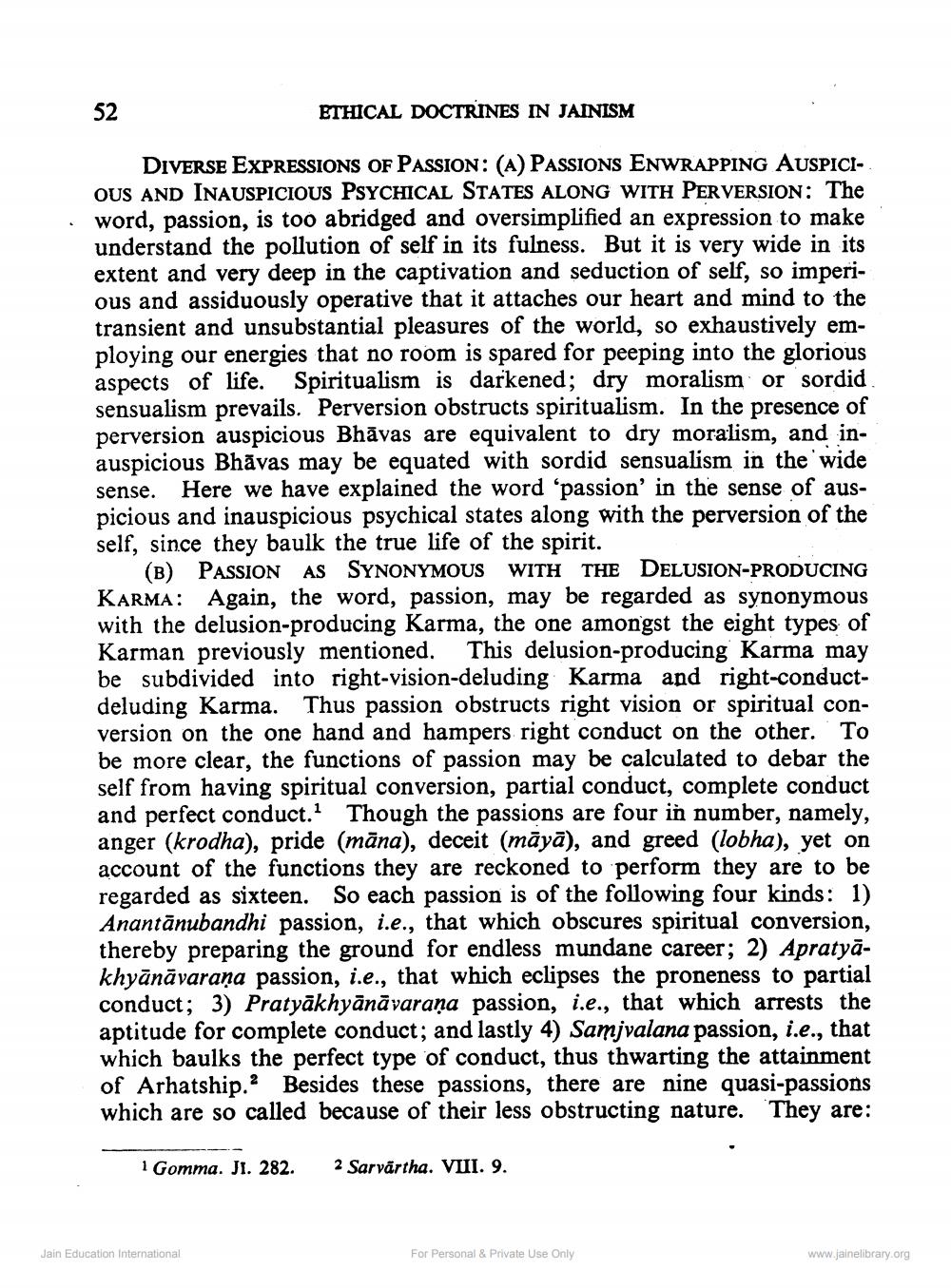________________
ETHICAL DOCTRINES IN JAINISM
DIVERSE EXPRESSIONS OF PASSION: (A) PASSIONS ENWRAPPING AUSPICIOUS AND INAUSPICIOUS PSYCHICAL STATES ALONG WITH PERVERSION: The word, passion, is too abridged and oversimplified an expression to make understand the pollution of self in its fulness. But it is very wide in its extent and very deep in the captivation and seduction of self, so imperious and assiduously operative that it attaches our heart and mind to the transient and unsubstantial pleasures of the world, so exhaustively employing our energies that no room is spared for peeping into the glorious aspects of life. Spiritualism is darkened; dry moralism or sordid sensualism prevails. Perversion obstructs spiritualism. In the presence of perversion auspicious Bhāvas are equivalent to dry moralism, and inauspicious Bhāvas may be equated with sordid sensualism in the wide sense. Here we have explained the word 'passion' in the sense of auspicious and inauspicious psychical states along with the perversion of the self, since they baulk the true life of the spirit.
(B) PASSION AS SYNONYMOUS WITH THE DELUSION-PRODUCING KARMA: Again, the word, passion, may be regarded as synonymous with the delusion-producing Karma, the one amongst the eight types of Karman previously mentioned. This delusion-producing Karma may be subdivided into right-vision-deluding Karma and right-conductdeluding Karma. Thus passion obstructs right vision or spiritual conversion on the one hand and hampers right conduct on the other. To be more clear, the functions of passion may be calculated to debar the self from having spiritual conversion, partial conduct, complete conduct and perfect conduct. Though the passions are four in number, namely, anger (krodha), pride (māna), deceit (māyā), and greed (lobha), yet on account of the functions they are reckoned to perform they are to be regarded as sixteen. So each passion is of the following four kinds: 1) Anantānubandhi passion, i.e., that which obscures spiritual conversion, thereby preparing the ground for endless mundane career; 2) Apratyākhyānāvarana passion, i.e., that which eclipses the proneness to partial conduct; 3) Pratyākhyānāvaraņa passion, i.e., that which arrests the aptitude for complete conduct; and lastly 4) Samjvalana passion, i.e., that which baulks the perfect type of conduct, thus thwarting the attainment of Arhatship. Besides these passions, there are nine quasi-passions which are so called because of their less obstructing nature. They are:
1 Gomma. JI. 282.
2 Sarvārtha. VIII. 9.
Jain Education International
For Personal & Private Use Only
www.jainelibrary.org




